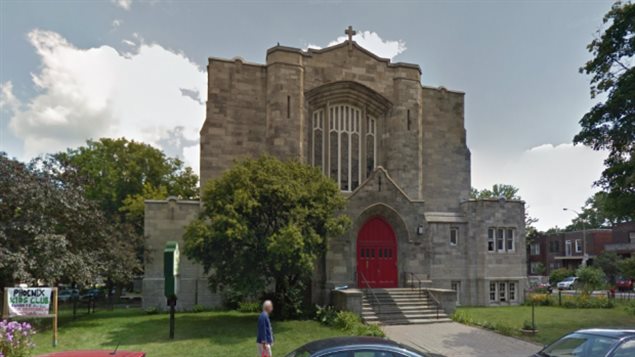Church buildings, mostly Christian churches, are no longer attracting the congregations that may have built them in years gone by. This is particularly true in the central areas of cities in Canada, and in many of the small towns in Quebec and other provinces.
In Montreal, one borough is facing several challenges due to the amount of church buildings that are for sale, and the conflicting, often passionate views on what should be done with them.
While residents and neighbours feel they no longer want or need what was once offered inside the buildings, they’re very attached to the outside of the buildings.
Does this mean open-season on the churches of N.D.G?
Peter McQueen is a councillor in the Cote des Neiges – NDG borough of Montreal. It’s one of the largest in the city with almost 170,000 residents and most diverse, with over 75 nationalities calling it home.
“NDG has so many churches because there’s the Catholic churches, both French and English and then there are the Protestant churches of all the denominations, Anglican, Presbyterian, and all the others.” McQueen explains.
ListenSt. Columba, formerly an Anglican Church, is perched on the slope of a little hill in NDG. It is one location where the developer’s plans and the resident’s vision clashed dramatically. The plans have been shelved for now, but if Montreal’s Mayor Denis Coderre has his way, citizens will no longer have the right or the power to prevent development.

Included in Bills 121 and 122, now before the province of Quebec’s National Assembly, is a provision to abolish the process by which citizens can organise against a proposed change or development in their neighbourhood, and proceed with a referendum of those citizens within the immediate area affected.
The process is not appreciated by developers even though it has not halted many projects. But it has in several cases, helped improve developments to the benefit of all.
François Cardinal, of Montreal’s French-language newspaper, La Presse, recently described the proposed elimination of local referendums as “a great democratic decline” that opens the door to the projects of promoters.” He wrote, “Remove this democratic insurance policy and you give the City and promoters the right to do virtually whatever they want, where they want”.
Peter McQueen says these developments could bring major changes to his borough.
“The thing we’re concerned about now, is with Mayor Coderre’s proposal to the provincial government to change the charter of the city of Montreal so that we would not, local citizens would no longer have the right to registers and referendums to block developments.
McQueen asks, “Does this mean open-season on the churches of N.D.G?” I mean is the community really prepared for that, losing a dozen churches in the coming decade?”
His party, Project Montreal, is proposing a moratorium on church sales and demolitions. He says, “the architecture has got to be saved, the green space has got to be saved, the interior is where it’s open for debate.”
“Community space and social housing, that’s the best of all.” McQueen says, but he is pragmatic.
“These are not always simple issues, and I voted for things, where I voted for the project and then the residents turned around and signed enough on the register to stop it, so I’m not saying I always agree with the residents on every single case, I’m just saying the residents should have the right to stand up for their local neighbourhood.”







For reasons beyond our control, and for an undetermined period of time, our comment section is now closed. However, our social networks remain open to your contributions.